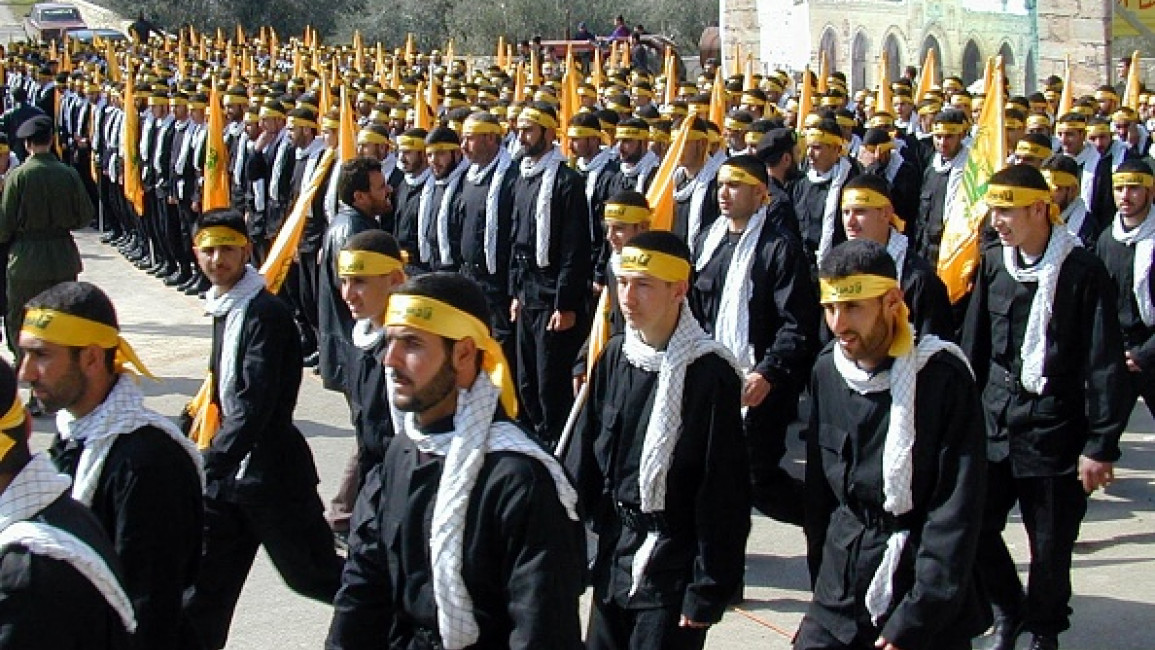Israel strikes Hezbollah fighters, medical centre in south Lebanon
Israel carried out a series of strikes in south Lebanon on Sunday, targeting a car carrying Hezbollah fighters and bombing a Hezbollah-affiliated health centre, killing a total of two people and injuring nine more.
According to Hezbollah's media department, at least one ambulance was put out of service after the Israeli strike on the health centre in Kafrkila, southern Lebanon.
This is the second time that Israel has struck a Hezbollah health centre since cross-border fighting between Hezbollah and Israel started on 8 October in the wake of Hamas's surprise attack on southern Israel a day prior.
Hezbollah also announced the death of fighter Fadel Shaar, whose position in the party was unspecified, in an announcement yesterday.
Sunday's bombings came on the back of a series of targeted strikes that Israel has conducted in southern Lebanon in the new year.
The strategy is a shift from the previous three months, where Israel would conduct wide-spread artillery and airstrikes rather than targeting specific members of Hezbollah and Hamas leadership.
The new campaign of targeted assassination has not conformed to the old rules of engagement, which generally restricted strikes to within 3 kilometres of the Israeli-Lebanese border.
An Israeli strike on Saturday killed a senior Hezbollah commander just east of the city of Sour – much farther north than previous strikes. On 2 January, an Israeli drone struck the southern suburbs of Lebanon's capital city, Beirut, killing Salah al-Arouri, the head of Hamas's military wing.
Are the assassinations working?
The loss of senior Hezbollah and Hamas figures, as well as the conducting of strikes so deep within Lebanon, has engendered anger among Lebanese across the political strata.
The funeral of Wissam Tawil, a senior Hezbollah commander, on 9 January brought out hundreds of supporters in southern Lebanon.
Still, while the losses produce a "human impact," they will most likely not cripple the Lebanese group's military capacity.
"Hezbollah is built on its organizational structure, not on individual personalities. These assassinations will not impact its fighting ability," retired Lebanese Brigadier General Amin Hoteit told The New Arab.
Hassan Nasrallah, the head of Hezbollah, has said that each Israeli strike would get its response – but has thus far stopped short of calling for a wider war with Israel.
Hezbollah has struck more sensitive Israeli targets in retaliation for the spate of assassinations, targeting an air control base in northern Israel on 6 January for the first time.
It has not conducted any targeted assassinations itself, lacking the airforce that Israel has used to kill Hezbollah leaders across Lebanon.
According to Kassem Kassir, a political analyst close to the Lebanese group, Israel's shift to targeted assassinations has not affected the group's military strategy until now. However, Kassir noted that "anything is possible," moving forward.
Though fighting between Israel and Hezbollah initially began after the latter launched missiles "in solidarity" with Hamas, the border fighting has gradually taken on a life of its own separate from Israel's military operation in Gaza.
Israeli officials have since said that it would not be enough for Hezbollah to cease rocket launches on northern Israel, but instead would need to withdraw from north of the Litani river – about 30 kilometres from the border.
The US sent Amos Hoschstein, a top diplomat tasked with mediating between Israel and Lebanon, to Beirut on 11 January, reportedly with a proposal for Hezbollah to withdraw just 7 kilometres from the border to de-escalate tensions.
In exchange, Israel would offer concessions on disputed border points between the two countries.
Hezbollah has said that it will not entertain any negotiations with Israel until there is a ceasefire in Gaza.


![Minnesota Tim Walz is working to court Muslim voters. [Getty]](/sites/default/files/styles/image_684x385/public/2169747529.jpeg?h=a5f2f23a&itok=b63Wif2V)




![An Israeli air strike on Jabalia killed teenage journalist Hassan Hamad [Screengrab/X]](/sites/default/files/styles/image_330x185/public/2024-10/hassan%20hamad1.jpg?h=c12e0b96&itok=Rd_dyCVp)

![Israeli strikes on Beirut [Getty]](/sites/default/files/styles/image_330x185/public/2176155077.jpeg?h=a5f2f23a&itok=Xq7ypWgM)